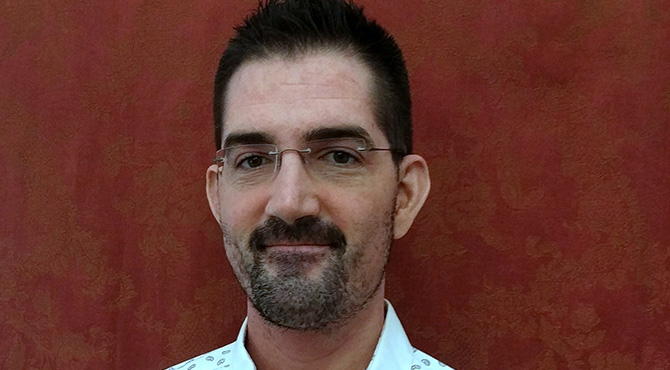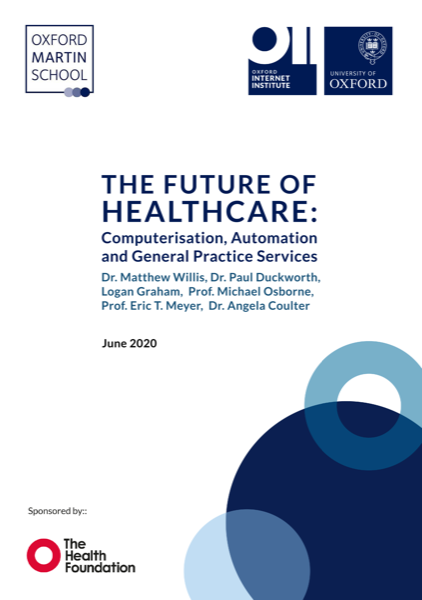This project is a collaboration between the Oxford Internet Institute, the Oxford Department of Engineering Science, and the Oxford Martin School, at the University of Oxford.


Dr. Matt Willis earned his PhD in Information Science & Technology from Syracuse University. He has been a researcher in academic, government, and private institutional settings including Sandia National Laboratories, the U.S. Department of Veterans Affairs, and several university affiliated research centres where he was a contributor to multiple grants from the National Science Foundation (NSF), National Institutes of Health (NIH), Defence Advanced Research Projects Agency (DARPA), and Intelligence Advanced Research Projects Activity (IARPA).
Matt joined the Oxford Internet Institute to work on a project sponsored by The Health Foundation entitled “The Future of Healthcare: Computerisation, Automation, and General Practice Services.” The project seeks to understand the impact of automation in the NHS and how automation can support the provision of healthcare within the NHS.
His intellectual foundation and research approach are informed by the disciplines of Social Informatics, Computer Supported Cooperative Work, Human-Computer Interaction, Sociotechnical Systems, Health Communication, and Social Shaping of Technology. His interests are in the design, use, and consequences of current and emerging technology in healthcare, from personal health records to artificial intelligence and blockchain. As a researcher, Matt values interdisciplinary collaboration and multi-methodological quantitative and qualitative approaches to both data collection and analysis.
Sociotechnical systems in healthcare, computer supported cooperative work, digital assemblages, human-computer interaction, digital research methods.
This project is a collaboration between the Oxford Internet Institute, the Oxford Department of Engineering Science, and the Oxford Martin School, at the University of Oxford.
By Matthew Willis, Paul Duckworth, Logan Graham, Michael Osborne, Eric T. Meyer, and Angela Coulter
To what extent can GPs in England face their challenges through automation? This report, leveraging ethnographic observations in primary care centres, suggests that about 44% of administrative and clerical tasks can be mostly or completely automated.

9 June 2020
• Automation would help ease pressures on staff, improve job quality and improve patient care • No single full-time role in general practice entirely replaceable by automation, finds study
10 October 2017

20 April 2017